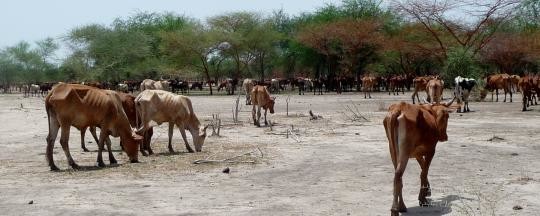The Manyo county in Upper Nile state of South Sudan is to hold this month a nomadic seasonal grazing conference between tribes from Sudan and South Sudan, who are expected to “make local and temporary agreements” and prevent future clashes.
“The cross-border migration conference will attract herders from both countries to discuss terms and conditions of this year’s migration as the period for herders to get their cattle into Wadakona is nearing,” a farmer told Radio Tamazuj.
Manyo county’s Comissioner, Al Tahib Okich Ajack, confirmed the conference to Radio Tamazuj, saying it will take place between 20 and 25 October. “Herders will be assigned grazing areas so they do not take their cattle to agricultural farms,” he explained.
The plan is to hold the conference every year, Commissioner Ajack said, adding that its purpose is to put in place policies and terms to be followed by groups arriving in Manyo and prevent clashes, which “may occur if the two sides have not met before”.
Ajack said that Manyo county has long borders with states as White Nile, South Kordofan, what makes it a grazing point for “all herders from Sudan.”
“We have extended invitations to various herders’ leaders in Sudan including, Falatah, Kenana, Awazimah, Awald Salim, Al Wald Himed, and many others who come grazing in Manyo county,” he disclosed.
The commissioner stressed that herders are “not allowed to enter South Sudan carrying weapons. Also no herder is allowed to leave their weapons in South Sudan and re-enter without them. I can provide security, but only if herders are unarmed.”
The county is now “safe” after the South Sudan Defense Forces (SSDF) and the central government signed a memorandum of understanding, Ajack affirmed: “Do not fear, our area is safe, no more militias in the bush.”
Manyo’s commissioner appealed to herders to meet authorities “before reaching grazing points to avoid conflicts and for their own protection and wealth, as we are now a country.”




